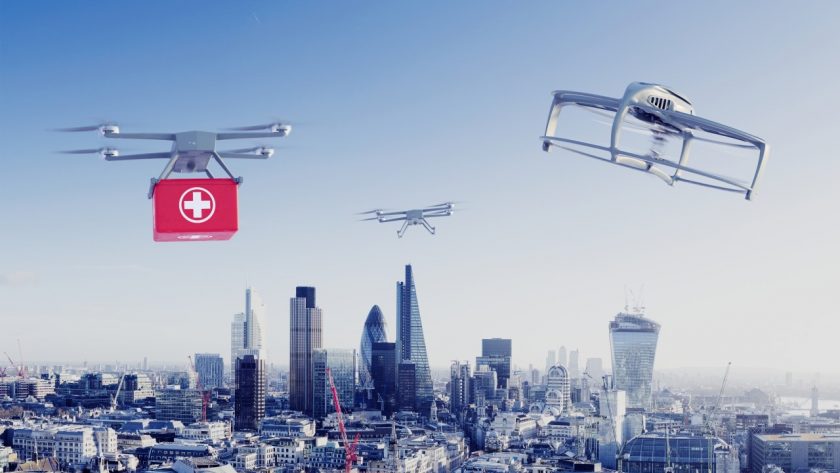The UK National Beyond Visual Line of Sight (BVLOS) Experimentation Corridor (NBEC), stretching from Cranfield University’s Global Research Airport to Oakley in Bedfordshire, is part of the Civil Aviation Authority’s (CAA) Innovation Hub Sandbox initiative. The 16 km corridor aims to provide a safe, managed and scalable environment in which to test BVLOS infrastructure, platforms, sensors and airspace-management systems.
Consortium partners Aveillant, Blue Bear, Cranfield University and Thales completed the first end-to-end BVLOS drone trials along the entirety of the NBEC at the end of 2022 according to a blog posted by Thales UK.
The NBEC environment incorporates a number of surveillance and tracking capabilities that provides a fused situational awareness picture key to allowing BVLOS operations. According to Thales, the experiment involved monitoring a drone along the flight corridor, using air and ground sensors (including Aveillant’s holographic radar) to track and manage its return journey. The flights also included a simulated airspace encounter to test avoidance manoeuvres during the en-route flight phase.
Another experiment tested the drone’s “electronic conspicuity” procedures – so you know exactly where it is at all times, and that it can act safely and appropriately. For example, if it loses its communications link, does it hover where it is, go to ground, or return home?
NBEC activity plays an important role in bringing together the wide range of experience and expertise needed to research, test and knit together these technologies and systems. Thales sees this as the only way that commercial drone operations across the UK can become a reality, because no one or two organisations can do it all.
Thales is ramping up its contribution to UTM operations in the UK. For example, it is deploying its TopSky UAS product at Cranfield DARTeC in 2022, building on earlier work with the solution supporting drone operations in Lille and Rennes. The company will continue to work closely with the CAA, other stakeholders and consortia partners, to develop UAV systems and enabling technologies, along with regulatory frameworks, certification and security.
The success of the NBEC’s first phase iterative trials shows that safe and consistent BVLOS operations are possible, says Thales. And while the trials, which show we’re still very much in in the learning phase, have highlighted complexities and raised questions, they’ve also shown how the NBEC consortium is helping to develop the future regulatory environment.
Source: Thales blog posted by Julia Jiggins, Thales UK Head of Strategic Marketing
For more information visit:




